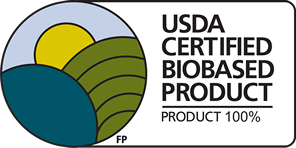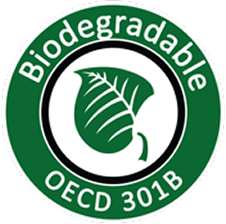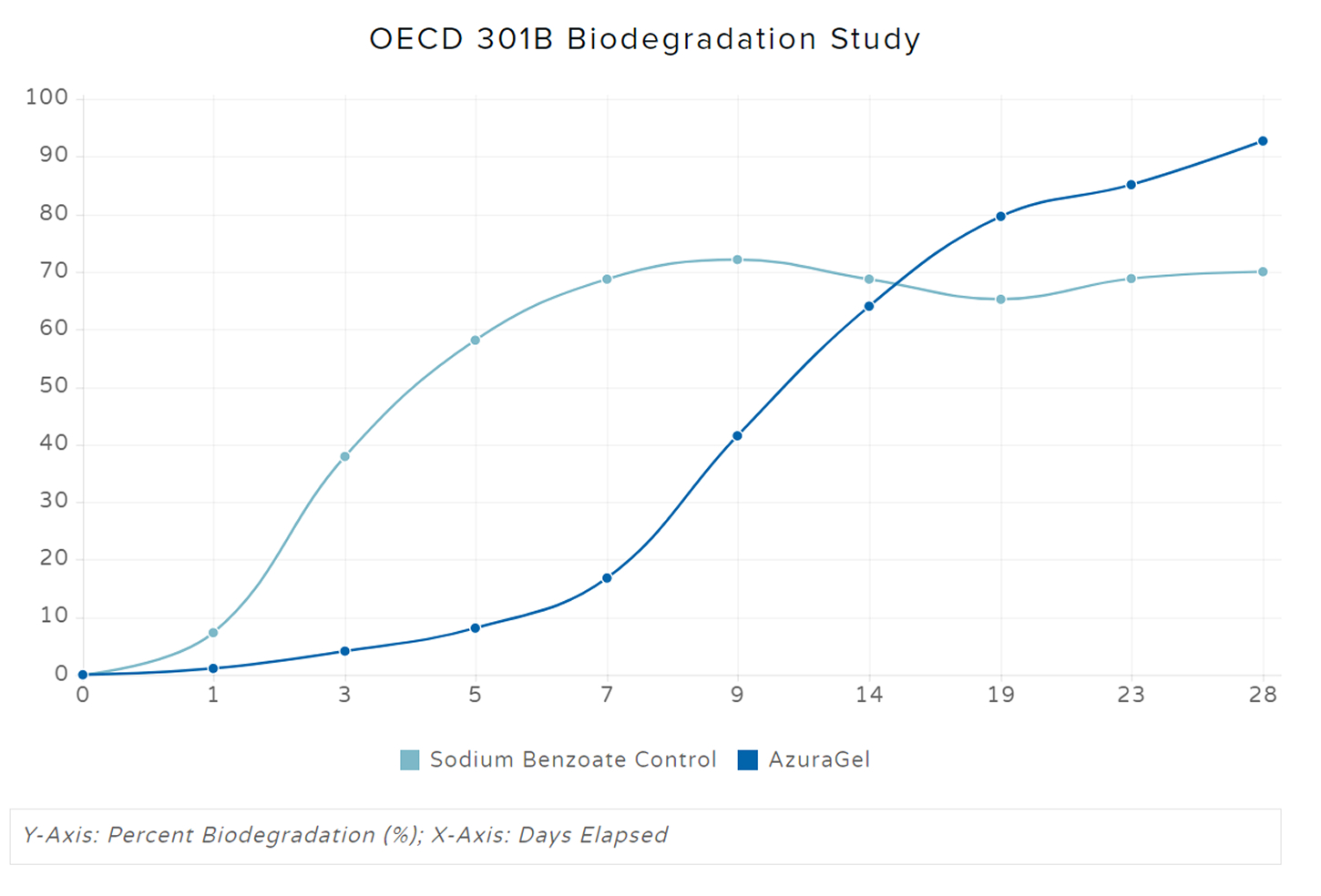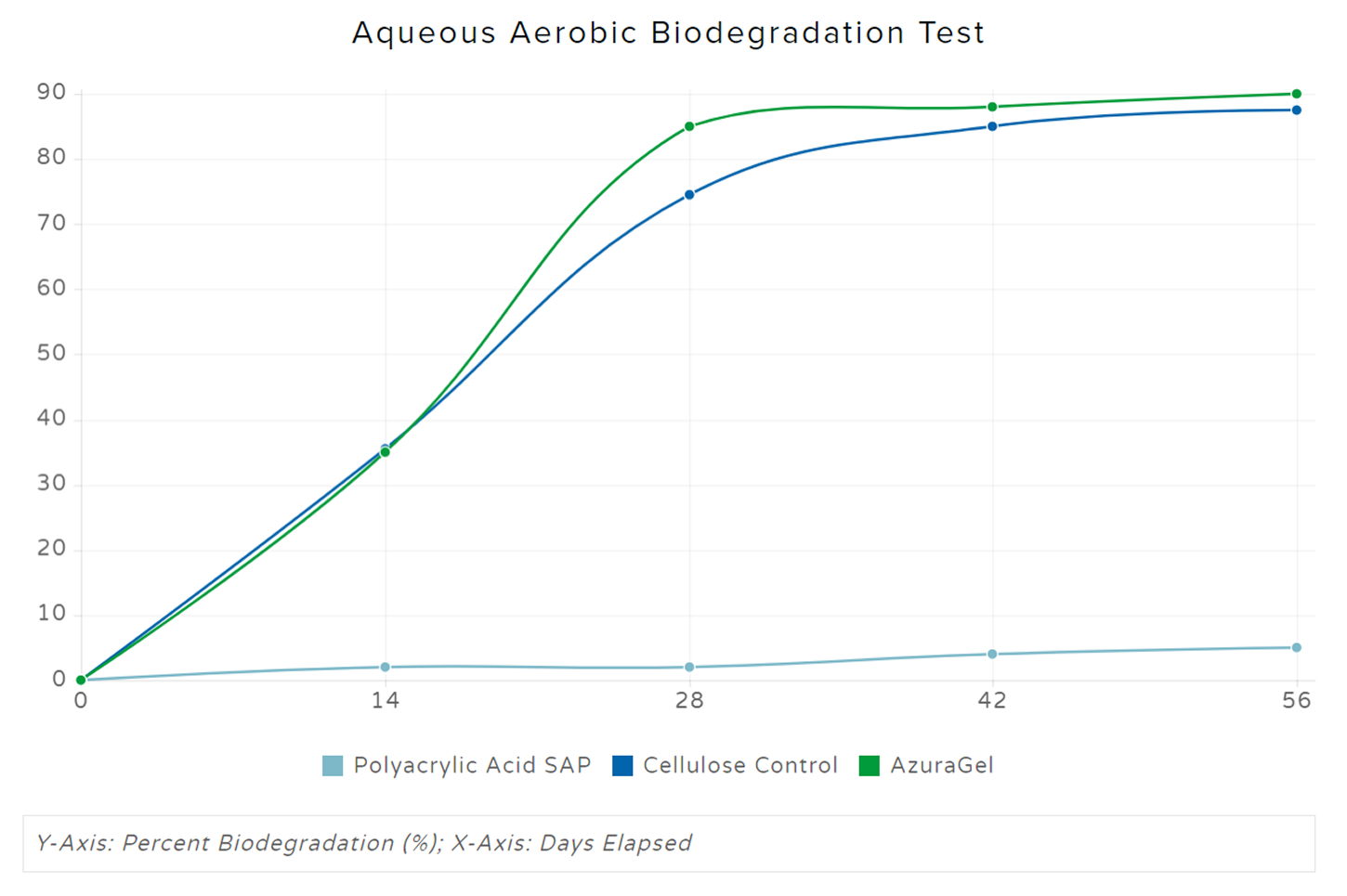Certifications
USDA Certified 100% Biobased
Biobased products are those made entirely or in significant part from renewable agricultural materials, forestry materials or natural products. The USDA makes the determination of what products can be classified as biobased.
For a product to gain biobased certification, a list of regulatory steps must be followed. This includes testing done via ASTM D6866-18 Method B, an analytic method that uses radiocarbon dating to measure the amount of Carbon-14 in a product and, ultimately, to quantify its biobased content.
Through this test method, we have demonstrated that our Ecovia Biopolymer products, AzuraGel and AzuraBase, meet the USDA BioPreferred Program’s Certified Biobased 100% label standards.

OECD 301B ‘Ready Biodegradable’
OECD “ready biodegradability” tests determine if a substance will rapidly and completely biodegrade in an aquatic environment under aerobic conditions, typically requiring at least 60% degradation within 28 days, and within a 10-day window.
Ecovia AzuraGel superabsorbent biopolymers have been tested using OECD 301B, which measures CO2 evolution to determine the extent of biodegradation. Thetest protocol monitors the degree of activity of microorganisms exposed to a material in a wastewater-derived inoculum, with increased biological activity and conversion of organic to inorganic carbon indicating “ready biodegradability.”
Ecovia superabsorbent AzuraGel demonstrated 92.7% biodegradation in 28 days.


Aqueous Aerobic Biodegradation Test
The aqueous aerobic biodegradability test protocol monitors the degree of O2 and CO2 evolution from material introduced to a fresh water environment. The test simulates an end of life scenario where material finds itself in fresh water sources such as our lakes or rivers. Ecovia superabsorbent AzuraGel demonstrated 90.2% (+/- 2.6%) biodegradation in 56 days as compared to a market leading Polyacrylic Acid SAP 4.5% (+/- 6%).
